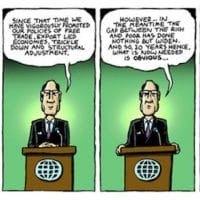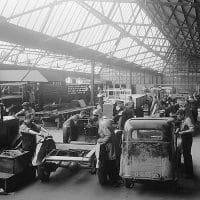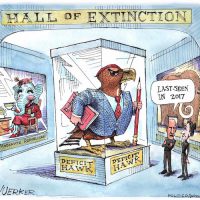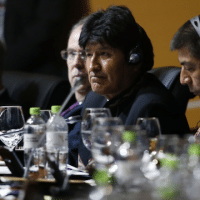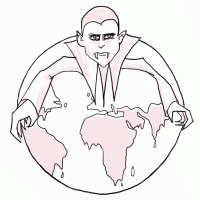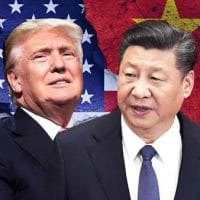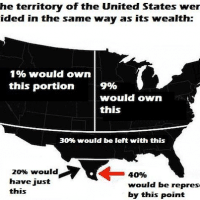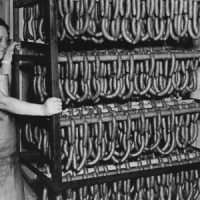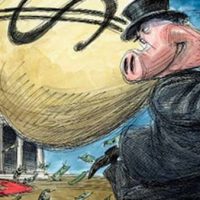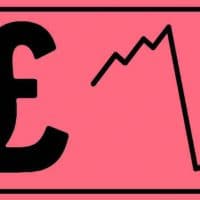-
The true face of the global recovery
Optimistic assessments of the synchronised recovery across the world economy ignore the factors driving the weak upturn that make it fragile.
-
World employers report
The history of capitalism is actually a combination of two histories: it’s a history of employers attempting to hire workers and develop new technologies to make profits and expand the reach of capitalism; it’s also a history of workers banding together to improve wages and working conditions and imagine ways of moving beyond capitalism.
-
Anti-materialism, capitalism, and violence against the human body: some preliminary comments
There are two kinds of on-going ‘attack’ on the materiality of the body (and nature) in capitalist society. A discursive attack inspired by post-structuralism; and an actual, objectively-existing, material attack by capital and its state. The latter is the focus of this article.
-
Chávez The Radical XIV: “we can’t convert everything we produce into merchandise”
In Chávez The Radical XIV, Chávez reflects on the contradictions of public planning and the transition to a socialist economy, within a system that remains dominated by capitalism.
-
Debt and taxes
Tax cuts and spending increases enacted by Republicans over the past four months will lead to wider than previously expected budget deficits, according to the Congressional Budget Office. The federal budget deficit would total $804 billion this year, 43 percent higher than it had projected last summer, and exceed $1 trillion a year starting in 2020.
-
Morales hits back at right-wing national representatives at the Summit of the Americas
Bolivian President Evo Morales hit back today at right-wing national representatives, including U.S. Vice President Mike Pence, who attended this weekend’s Summit of the Americas in the Peruvian capital Lima.
-
Exploitation and super-exploitation
Extreme rates of exploitation in the Global South is a palpable, directly observable fact. We don’t need a theory to know this but we do need a theory if we are to understand what we can see and work out the consequences that flow from it.
-
What’s driving trade tensions between the U.S. and China
There is a lot of concern over the possibility of a trade war between China and the US. In early April President Trump announced that his administration was considering levying $100 billion of additional tariffs on Chinese exports, after the Chinese government responded to a previously proposed U.S. tariff hike on Chinese goods of $50 billion by announcing its own equivalent tariff hikes on U.S. exports. And the Chinese government has made clear it will again respond in kind if these new tariffs are actually imposed.
-
The United States is an oligarchy, not a democracy
In the U.S., any policy change with little support from the upper class has about a one in five chance of becoming law, while those backed by the elites triumph in about half of occasions, even when they go against majority opinion.
-
Willetts the conqueror (part 5): knowledge exchange
In addition to subsumption of teaching and research, the third mission of neoliberal marketisation has been termed, “knowledge exchange.” The introduction of this mission represents not only a fundamental attack on the academic profession, but also a desperate attempt to marshal the knowledge-producing powers of universities to kick-start a stagnating post-crisis global economy.
-
Ten years after crash
The economic crises that came to a head in 2008 and the massive response—by the U.S. government and corporations themselves—reshaped the world we live in.* Although sectors of the U.S. economy are still in one of their longest expansions, most people recognize that the recovery has been profoundly uneven and the economic gains have not been fairly distributed.
-
The imperial intentions of Trump’s trade war babble
In defence of his trade war with China, Trump claims that ‘when you’re $500bn down you can’t lose.’ The problem with this stance is that persistent U.S. trade deficits with China are arguably a sign of U.S. strength or even imperial privilege, not weakness. However, on this issue, he has much of conventional economics wisdom supporting him in his delusions that the U.S. is being treated unfairly or is ‘behind’ based on these deficits.
-
Aijaz Ahmad on Syria, U.S. and Palestine
A rational solution is possible for Syria, if the US wants to be rational. But with Kushner in the White House Palestine faces a grim future.
-
China’s rise threatens U.S. imperialism, not American people
That China and the U.S. are moving in opposite directions is not a new trend, but it has been brought into sharper focus in the Trump era. Growing anxious about its diminishing international authority, the U.S. demonstrates increasing hostility towards China.
-
We struggle against illegitimate public and private debt which are at the core of the capitalist system
What we are fighting is a capitalist system that destroys nature.
-
Is France heading for another May ’68?
Just fifty years ago on March 22nd we saw the beginning of the events in France which terrified the ruling class, led to one of the biggest general strikes ever, along with a wave of factory occupations, and could only be calmed by important concessions from the bosses (minimum wage raised by 35% and new workplace organising rights guaranteed for trade unions). For the first time for decades, the spectre of revolution in the West seemed real.
-
Basic income: progressive cloak & neoliberal dagger
For almost three decades, the Ontario Coalition Against Poverty (OCAP) has been fighting against neoliberal austerity, especially that aspect of it that has involved systematically degrading systems of income support. The underlying motive in this attack has been to render benefit provision as inadequate and precarious as possible so as to create the desperation that can drive people into the expanding low wage sector.
-
Banking reforms in the context of subordinate financialization
It is both an honor and a pleasure to be here at the event of marking the 75th Anniversary of the Ceylon Bank Employees Union. First, let me offer my heartfelt greetings to CBEU, its office bearers and membership. CBEU has had a proud and celebrated history of struggles that helped immensely to record so many victories to improve the conditions of the working class in general and the bank employees in particular.
-
Calculating surplus value to facilitate workplace organizing
Using Marx’s critique of political economy, it’s possible for workers employed in a variety of industries to calculate the value of their work and how this value is divided between employer and employee. It becomes possible to calculate the socially necessary labor time and surplus labor time, worker wages and employer profits in their particular workplace.
-
Commoditisation and the public sphere
The commoditisation of education which makes it completely incapable of providing students with the wherewithal to engage in any active and worthwhile public discourse, has proceeded apace under the neo-liberal regime.


